Congratulations on completing your high school education! Now it’s time for the next stage of your life; vocational studies at college. With college comes a new way to study, more responsibility and more self-discipline required to complete your course. Not to mention, if you are studying on-campus, there is the added distraction of a new group of friends and possibly even a part-time job to juggle. The good news is you are about to start one of the most rewarding careers you can find; one working with animals! Now that you are ready to turn one of your passions into your future, we will take you through some tips that can help you smooth the transition from high school to a technical college.
Tip 1 – Time Management
Time mismanagement is one of the common problems students face in general. It is often due to the number of tasks or activities that students have to complete on any given day, for example, assignments, tests, group projects, presentations, etc
Do you have a difficult time fitting everything into your day? Let’s look at some useful tips that can help you achieve your daily study goals:
- Come up with a realistic study timetable
- Work on challenging tasks on time and reach out early when you need to
- Create a study plan and practise it
- Think you need 5 hours? Plan for 6 hours instead. Allow for more time than you need
- Take breaks in between studying for knowledge checks.
Come up with a realistic study timetable
Think of the hours you spend every day, whether sleeping, eating, catching up with friends, working or commuting. You may conclude that you barely have enough time to study. That is why you need to create a study schedule that will make those study hours count.

Prepare your schedule each week and list down the calendar items, such as assignments and assessments (following your training plan). Review and include anything that still needs your attention carried from the previous week. Also, be sure to include any commitments out of college and extracurricular activities for the whole week.
Write down when each study session, college day, work placement days and tutor appointments will occur, i.e., day and time. Then commit to your study schedule and review your progress each week!
Lastly, if you have a job make sure you check out our 7 tips to juggle work and study in the animal care industry.
Work on hard tasks on time and reach out early when you need to
Make it your habit to always begin your studies with the most difficult, important task. Or else, you will be a victim of bad study habits. At this time, you are fresh and energised, and in a better frame of mind to address the challenging work and make some real progress. This will also take some pressure off of you and make the rest of your tasks more comfortable to handle.
If you are struggling with a task or project assigned to you or unsure of how to begin, speak to your tutor or trainer and ask them for some help or suggestions. Once you understand what is required of you, you can move full steam ahead/OR you will have more confidence in powering through the work.
As you continue with your course, whether it is in veterinary nursing, animal care or horse care, you must rely on others’ help, expertise and knowledge to assist you through your learning process. Expertise from tutors and groups will greatly help you tackle complex subjects and make the most effective use of your study time.
Create a study plan and practise it
You are more than just a student, independent of your qualification or ambitions. You have a life outside your studies. Your diary doesn’t need to be cut short simply because you have started college. Extracurricular activities, wellness activities and spending time with your friends will require some time off and provide you with a healthy balance and approach to life.
Inevitably, you will also spend time on your phone, gaming or watching TV. But for how many hours? Start controlling the number of hours you spend on those activities, and you will reserve more time for other essential things. You will need to set short-term, medium and long-term goals for each activity; otherwise, they might clash. Pay more attention to the most critical or valuable action(s).
Still deciding on what course to start?
Read our post written for high school students and graduates to compare courses.
If you need help setting goals, read our post on How to set study goals to help you achieve more.
Plan for more time than you need
You cannot plan for everything. Challenges will pop up, and some tasks will take longer than the stipulated time. As you plan for your study sessions, always give yourself more time than you think you will need.
Take breaks in between studies for knowledge checks
You want to have digestible chunks of what you study. Therefore, take small breaks in between your studies. Pause for knowledge checks. Reflect on what you are learning. It’s fair to get a snack or get up and stretch a little. You can also walk around as long as you return to your studies.
Tip 2 – Self-discipline is key
Gone are the days when your parents would remind you of your pending homework, tidying up your room or doing your laundry because coinciding with the commencement of your college studies is also a transition from teenager to adult.
Your high school teachers may have been lenient with you; pushing you into completing your assignments even when you didn’t want to. Or maybe, they would be lenient with you whenever you failed to submit your projects on time. What about preparing for an exam? They would help you with everything. Well, continuous ‘nagging’ is less likely to happen during a vocational course.
With self-discipline, you will develop the motivation to focus on your assignments and assessments. Even if it doesn’t come naturally to you, you will find ways to stay focused and motivated to achieve your study goals.

Without self-discipline, you could find yourself falling behind in your study workload and possibly risking not completing your course. Start from the beginning by looking for easy ways to transform your routines and habits to help you stay on track. Strive to stick with it by keeping the end goal in sight. You will not only be a step closer to achieving your career dreams, but you will also become an independent adult.
Tip 3 – Remember your passion and study hard
You didn’t secure a place on your course by accident. It is because you worked hard to achieve everything you have so far.
In saying this, your skills may differ greatly from those you will acquire in the upcoming months. For this reason, some of the study techniques you applied in your previous years of schooling may not work as well with your college course. For instance, if you are used to cramming the night before sitting an exam, it is less likely to work in a more hands-on course such as veterinary nursing or animal care.
Furthermore, the volume of information you will need to recall at college will be more than it was in high school, so not only learning but also understanding course material will be even more vital to your success than before.
Additionally, unlike in high school, the information in vocational courses is cumulative. The studies you will cover in your first months will be required for future months and even years. Not only will you be required to remember the information, but you will also recall and apply it in your everyday work.
Final thoughts for students transitioning from high school to vocational studies
The advice above is simple, but every tip can make a world of difference if you stay true to it. Thorough training and practising will yield consistency, and in no time you will be on your way to a fulfilling career working with animals.
About AVT
We have been training animal care, animal behaviour and training, equine care and veterinary nursing students for over 25 years in Australia. Students who undertake AVT courses range from high school-aged students just starting their pre-vocational journey right through to mature-aged students seeking an alternative career path. Graduates are highly respected and sought after by industry professionals, businesses and organisations. If you want the background knowledge and skills to help you secure your career in the animal care industry, check out our qualifications here or gain new skills by studying one of our short courses.
Start an Animal Care Course
Study On-campus
ACM20121 Certificate II in Animal Care (VETDSS )
About Our Schools Program
VETDSS for High School Students
Flexible Online
ACM20121 Certificate II in Animal Care (Online)
Studying Online









